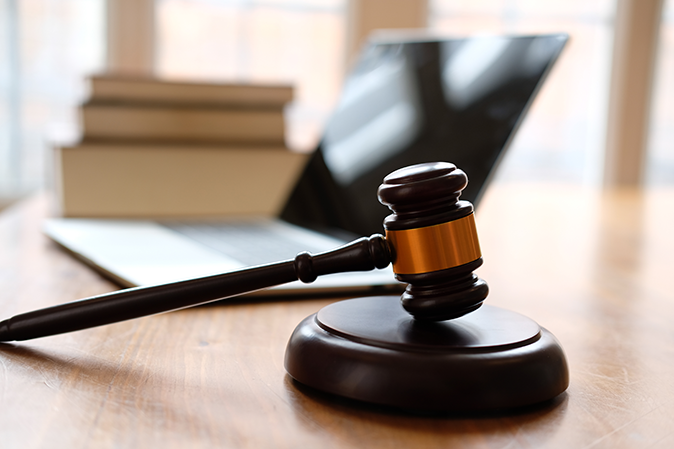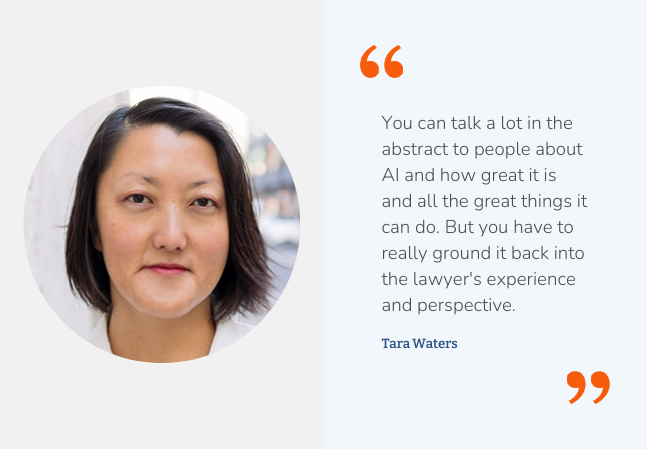Welcome to BARBRI, the trusted global leader in legal education. Continue to access the same expert-led Strafford CLE and CPE webinars you know and value. Plus, explore professional skills courses and more.
About the Course
Introduction
This CLE course will discuss an emerging new form of organization, the decentralized autonomous organization (DAO). The panel will discuss how blockchain and smart contracts permit this novel form of governance structure. The panel will discuss the risks and advantages of utilizing a DAO instead of, or in tandem with, a traditional entity like a corporation, LLC, or foundation.
Description
Due to the growing decentralized finance (DeFi) movement, a desire to use blockchain to eliminate intermediaries, and tighter governmental regulation over digital assets and cryptocurrencies, DAOs have emerged as a new way to form and structure business relationships. DAOs are run autonomously and allow individuals to work with like-minded people worldwide, governing through the use of tokens or other digital assets. A DAO's control and governance functions are distributed horizontally across its members, eliminating or reducing the need for a central authority and thus making them attractive to DeFi enthusiasts and Web3 projects.
Regulating DAOs presents a unique issue of legal identity due to the lack of formal legal recognition, which implicates a serious question of "off-chain" liability and legitimacy for a DAO and its members. Wyoming tried to address this issue by enacting a law that "is designed to allow DAOs to fit within an LLC structure," intended to combat the concerns of DAO members regarding personal liability under the current widespread "general partnership" principles. Numerous other creative solutions have been developed by jurisdictions as well as the DAOs themselves to help limit this liability, often through the structuring of "wrappers" that connect a Web3 DAO to a Web2 world.
Another legal identity issue for DAOs is their inability to enter into contracts or enforce their legal rights in litigation. Due to the absence of legal recognition, there is no entity with standing to serve as plaintiff. There can also be no recourse in the event of a contract breach due to a DAOs reliance on smart contracts for internal governance matters, which in and of themselves generally lack legal enforceability. Therefore, for the DAO and its members, a push for legal recognition through some type of "off-chain" entity may be essential for its sustained existence in today's markets.
Though faced with current and impending entity and securities regulation, DAOs still offer a unique way for groups of like-minded individuals worldwide to crowdfund their business ideas and create an organization that aligns with their collective goals. DAOs were made to operate as a self-regulated organization that strives to connect the sometimes revolutionary ideas of their members and allow for a decentralized governance system without bias from a smaller pool of individual decisionmakers. Limiting the decentralization and autonomous aspects could have unintended consequences that diminish the reasons that attract many people to DAOs.
Listen as our authoritative panel discusses this emerging form of business structure, how to mitigate risks for DAO participants and treasuries, raise capital in a decentralized manner, enforce contracts, and proceed with litigation.
Presented By

Mr. Bench helps entrepreneurs, companies, and venture capital and private equity funds with international and domestic business transactions. His clientele stretches across Asia, Europe, the Middle East, Africa, and the Americas. National and global trade organizations regularly invite Mr. Bench to speak regarding international business transactions, particularly foreign direct investment to and from the U.S. and China. He is an emerging legal expert in the fast-moving and complex web3 ecosystem, including business and regulatory issues surrounding decentralized autonomous organizations (DAOs), smart contracts, decentralized finance (defi), cryptocurrencies, coins, and tokens, including non-fungible tokens (NFTs). He has worked on wide-ranging blockchain projects involving various international DAO communities, NFT artists and studios, layer-2 blockchain developers, metaverse companies, and celebrity brand influencers.

Mr. McAvoy takes a practical and knowledgeable approach to the law of digital assets, private funds, securities, and other investments from a transactional, regulatory, fundraising, and formation perspective. As co-chair of the firm’s FinTech and Blockchain practice, he frequently works at the intersection of all of these areas, particularly with respect to the formation and launch of private investment funds, including those with a digital asset or FinTech strategy; offerings by and investments into organizations in the crypto space; structuring decentralized autonomous organizations (DAOs); navigating the launch of non-fungible token projects; asset fractionalization; coordinating complex international projects; and helping digital asset organizations comply with the rapidly-evolving regulatory environment. Mr. McAvoy is a trusted advisor to numerous investment advisers, digital asset projects, DAOs, fund sponsors, broker-dealers, and investors, and has represented a range of organizations, from startups to Fortune 500 companies to unincorporated entities through all portions of the corporate life cycle.
-
This 90-minute webinar is eligible in most states for 1.5 CLE credits.
-
Live Online
On Demand
Date + Time
- event
Thursday, June 16, 2022
- schedule
1:00 p.m. ET./10:00 a.m. PT
- Decentralized autonomous organizations
- Establishing via blockchain
- Smart contracts
- Limitations of DAOs
- Ownership liability
- Lack of plaintiff
- Inability to enforce a contract
- Anti-money laundering law compliance
- Connecting with the traditional financial system
- Advantages to traditional business forms
- Democracy
- Immutability
- Decentralization
- Structuring of DAO "wrappers"
- Wyoming
- International solutions
- Regulations
- Crypto tax reporting
The panel will address these and other key issues:
- How is a DAO established?
- What are the limitations of using a DAO as a business structure?
- What are the advantages of using a DAO?
- What are some of the novel concepts emerging from DAOs?
- What pending legislation and regulations are affecting the use of DAOs?
Unlimited access to premium CLE courses:
- Annual access
- Available live and on-demand
- Best for attorneys and legal professionals
Unlimited access to premium CPE courses.:
- Annual access
- Available live and on-demand
- Best for CPAs and tax professionals
Unlimited access to premium CLE, CPE, Professional Skills and Practice-Ready courses.:
- Annual access
- Available live and on-demand
- Best for legal, accounting, and tax professionals
Unlimited access to Professional Skills and Practice-Ready courses:
- Annual access
- Available on-demand
- Best for new attorneys
Related Courses

Multinational Data Privacy Compliance: Managing EU and UK Regulatory Requirements
Tuesday, March 24, 2026
1:00 p.m. ET/10:00 a.m. PT

California Climate Disclosure Laws: Compliance Strategy for SB 253 and SB 261
Available On-Demand
Recommended Resources


Expert Interview: Tara Waters and How AI Can Bring People Together
- Legal Technology

